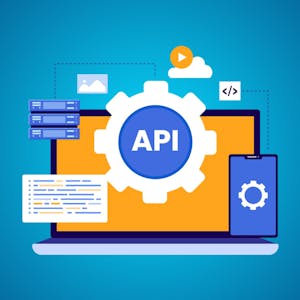Introduction to PySpark
About this Course
Welcome to Introduction to PySpark, a short course strategically crafted to empower you with the skills needed to assess the concepts of Big Data Management and efficiently perform data analysis using PySpark. Throughout this short course, you will acquire the expertise to perform data processing with PySpark, enabling you to efficiently handle large-scale datasets, conduct advanced analytics, and derive valuable insights from diverse data sources. During this short course, you will explore the industry-specific applications of PySpark. By the end of this course, you will be able to: 1. Attain a basic understanding of the introduction of big data, including its characteristics, challenges, and importance in modern data-driven environments. 2. Familiarize with Spark architecture and its components, such as Spark Core and Spark SQL. 3. Familiarize with distributed computing concepts and how they apply to Spark\'s parallel processing model. 4. Explore PySpark and big data concepts to solve data-related challenges. 5. Write PySpark code to solve real-world data analysis and processing tasks. This short course is designed for Data Analysts, Data Engineers, Data Scientists, and Big Data Developers seeking to enhance their skills in utilizing PySpark for data processing and analysis. Prior experience with Python and Hadoop is beneficial but not mandatory for this course. Join us on this journey to enhance your PySpark skills and elevate your analytical and design capabilities.Created by: Edureka

Related Online Courses
This is a self-paced lab that takes place in the Google Cloud console. In this lab you will learn how to migrate a Cloud SQL for MySQL database to Cloud Spanner using Google Cloud\'s data migration... more
This course delves into both the theoretical aspects and practical applications of data mining within the field of engineering. It provides a comprehensive review of the essential fundamentals and... more
In Data Science for Health Research, learn to organize and visualize health data using statistical analysis in programs like R. Explore how to translate data, interpret statistical models, and... more
This specialization is intended for beginners to learn how to become proficient in Linux programming. It will prepare you for a role as an information technology professional by introducing you to... more
Welcome to the \"Tools and Techniques for Managing Stress\" course! This course offers valuable tools and techniques to effectively manage and cope with stress in both personal and professional... more







